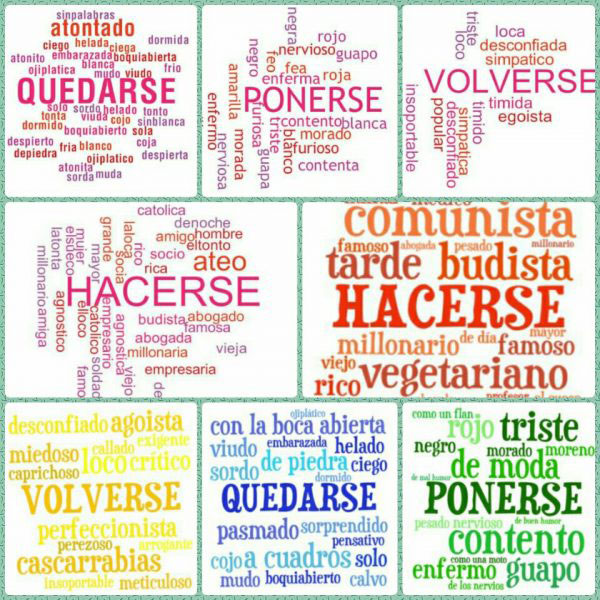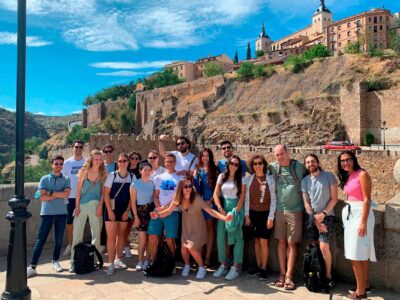
Change verbs are those that express voluntary or involuntary changes (physical appearance, character, profession, ideology, mood, etc.) that affect temporarily or permanently.
Unlike other languages, in Spanish there is a series of verbs that we can use to express changes, but each one has a different meaning that indicates whether the change is permanent, temporary, voluntary, involuntary, rapid or progressive.
Let’s learn the ones that are used most in daily life.
PONERSE
Ponerse + adjective:
- Physical state, health, mood.
- Expresses a rapid, temporary and involuntary change.
María turned red when she saw her ex-boyfriend at the disco.
She has become sad because she didn’t pass the exam.
Juan got handsome for his sister’s wedding.
HACERSE
Hacerse + noun
- Ideology, profession, religion, age, state.
- Generally expresses a voluntary change by the person (except for age).
I don’t want to get old. I prefer to be young.
She became Muslim to be able to marry her husband.
He has become vegetarian out of respect for animals.
QUEDARSE
Quedarse + adjectives, past participle
- States (mute, blind, deaf, widowed, pregnant, etc.).
- Expresses an involuntary, permanent or lasting change and in many cases negative.
He went blind after the accident at work.
She got pregnant before getting married.
He has fallen asleep on the sofa watching TV.
VOLVERSE
Volverse + character adjective
- Expresses a generally lasting and involuntary change on the part of the subject.
- Often has a negative nuance.
Our boss has become very unpleasant lately. I don’t know what’s wrong with her.
He has become capricious after winning the lottery.
She has become unbearable because now she is the boss of the company.
LLEGAR A SER
Llegar a ser + noun or adjective
- Result of a lasting process, which is socially considered positive.
- Implies active participation on the part of the subject.
María has become the boss of the company after much work, study and effort during recent years.
Although his parents were illiterate, Pedro has become an academic and now works as a researcher at Universidad Complutense.
CONVERTIRSE EN / TRANSFORMARSE EN
Convertirse en/ Transformarse en + noun or adjective
- Indicates a radical change, a transformation.
Marisol has become a very attractive woman, although at school everyone said she was very ugly.
Although as a child she was very nice, after marrying a very famous politician she became an unpleasant and distant person.
Let’s learn some daily expressions related to change verbs!
- Quedarse de piedra: very surprised
- Quedarse en los huesos: very thin
- Quedarse en blanco: To forget what had been memorized
- Ponerse rojo: to blush
- Ponerse morado: To gorge oneself with food
- Hacerse el tonto: to pretend not to understand



